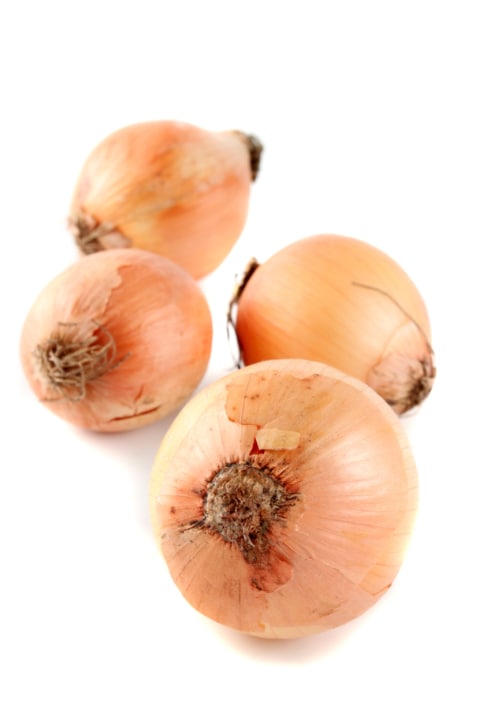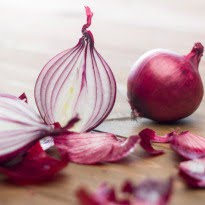
Hindi Name: Madras Onions
Tiny onions called so because they are used a lot in South Indian cuisine. The flesh is thicker and it has a mild sweet taste.
Madras onions, more commonly known everywhere else as shallots, are like baby red onions but have a sweeter, milder flavor as compared to onions. They grow as garlic does, in a cluster and usually grow in pairs of bulbs inside the skin. If stored in a dry and dark place, they can be stored for weeks without losing any flavor. Like onions, raw shallots release certain substances when sliced, which irritate the eye. They have lower water content and hence need to be cooked more gently than onions. Recipes which specifically require shallots should not be made using onions, as shallots are much milder and sweeter. Fresh green shallots are available in the spring whereas dry shallots, which are dry skinned and have a moist flesh, are available throughout the year.
Types
Brown Shallots: They are the most commonly found. They may have more than one bulb inside.
Banana Shallots: These are the largest variety and are named for their size.
Pink Shallots: They get their name from the color of their skin.
Usage
Shallots are often pickled and also used in fresh cooking. Shallots pickled in red vinegar are often served in Indian restaurants along with papads and green chutney. They are widely used in curries and different types of sambars and lentil based dishes in Southern India. Deep fried shallots are a popular ingredient in Asian cuisine. Grated shallots mixed in dense yoghurt are served with kebabs all throughout Iran.
Shallots bring a subtle flavor to the palette and are relished by French cuisine lovers. Caramelized shallots lend a sweeter profile to the plate while deep fried fine slices can be topped as condiments. It is used as an elementary spice in Thai, Vietnamese, Malaysian and Indonesian cuisines.
Nutritional Value
Rich in vitamin A, B, C and E, shallots contain very few calories and reduce cholesterol levels. Improving blood circulation, it also helps reduce the risk of cardio-vascular diseases.
How to choose:
Always pick fresh shallots for a punch of flavor. Old shallots can be spotted by a yellowy-white or green shoot growing from the head. Also avoid packaged shallots which may contain rotten pieces. Avoid shallots with soft spots and moldy patches.
[“source-ndtv”]









